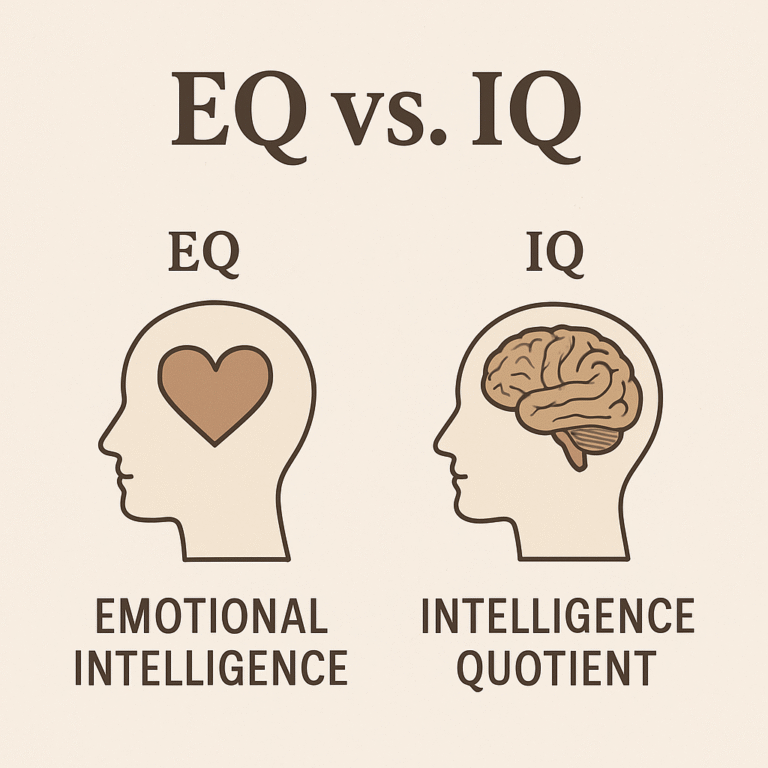How to Continuously Improve Your Emotional Intelligence
The first time I read Emotional Intelligence, sometime around 2010, I thought I was learning a new set of skills. Something I could study, understand, maybe even master.
But over the years, I realized something deeper: emotional intelligence isn’t a skill set. It’s a way of being. It’s not about “getting better” at managing people — it’s about becoming more honest with yourself.
Emotional intelligence, at its core, is the byproduct of personal growth. It’s not something you achieve once and move on from. It’s something you build — slowly, consistently — by working on yourself.
I’m not a therapist or a psychologist. I’m sharing this from my own experience, based on what I’ve observed in others, both personally and professionally, as well as what I’ve worked on within myself. These aren’t just theories — they’re truths I’ve lived.
Here’s what I’ve come to believe about how to improve your emotional intelligence — and keep growing it over time.
1. Cultivate Radical Self-Awareness
Self-awareness is the primary foundation of emotional intelligence — and it’s not just about noticing your thoughts and feelings. It’s about being brutally honest with yourself.
Ask yourself:
- What did I just say or do — and why?
- How did I make others feel in that moment?
- What patterns do I repeat?
- When I’m in conflict, do I default to blame or reflection?
Self-awareness is about reflecting on your own behavior without judgment or justification. It’s also about looking at situations objectively — not through the lens of your emotions, but from a clear-eyed view of what really happened.
Most people believe they’re being objective when, in fact, they’re just validating their emotions. True objectivity means stepping outside yourself long enough to consider the possibility that someone else’s view might also be valid.
Start small: take 5 minutes at the end of your day to mentally replay a conversation or interaction that stood out to you. What do you notice when you take your ego out of it?
2. Understand Your Triggers
We all have emotional triggers — people who irritate us, situations that make us feel small, comments that get under our skin.
But here’s the truth: it’s not about them. It’s about you.
If someone consistently bothers you, ask yourself:
- What exactly is it about them that triggers me?
- Do they remind me of someone?
- Do they activate an insecurity or fear I haven’t resolved?
You can’t change other people, but you can explore why certain traits or behaviors get such a strong reaction from you. That awareness gives you power — not over others, but over yourself.
The more you understand your emotional triggers, the less reactive and more grounded you become. And that’s emotional maturity in action.
3. Don’t React to Everything
This is a hard truth: not everything needs your response.
In emotionally charged moments, many of us feel an urge to fix, respond, or defend ourselves. But silence is often stronger than speech.
- If someone says something hurtful, you don’t have to retaliate.
- If a situation feels unfair, you don’t have to react immediately.
- If you’re misunderstood, you can pause — and choose when and how to respond.
When you stop reacting to everything, you reclaim your energy and protect your peace. More importantly, you can stop feeding the drama by giving your attention elsewhere.
Emotional intelligence isn’t just about what you say. It’s also about what you don’t say.
Bonus: Practice the Pause
One of the simplest and most effective ways to develop emotional intelligence is to pause before speaking or acting.
That microsecond of stillness — before you respond to a message, reply in a meeting, or react to criticism — is where emotional growth lives.
In that pause, you can ask:
- Is this worth reacting to?
- What emotion am I feeling right now?
- What outcome do I really want here?
That’s where emotional intelligence separates itself from emotional impulse.
EQ Is Built, Not Bought
Developing EQ is not a one-time effort that we can add in a checklist. It’s an ongoing discipline of reflection, self-awareness, and conscious restraint.
There’s no arrival point — just a more profound and deeper understanding of yourself and others.
So if you’re serious about growing your EQ, don’t wait for a crisis to practice it. Build it every day:
- By becoming aware of your inner world
- By studying your reactions instead of justifying them
- By understanding that peace is often more potent than being right
Emotional intelligence is about how you lead yourself before leading others.
And that kind of self-leadership never goes out of style.








